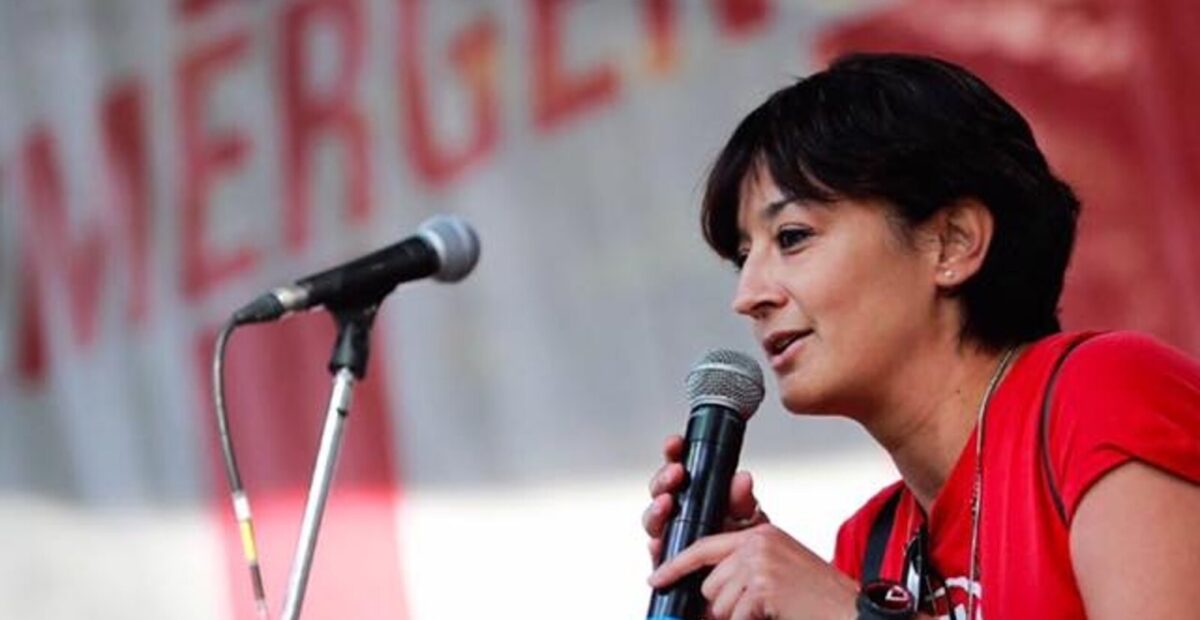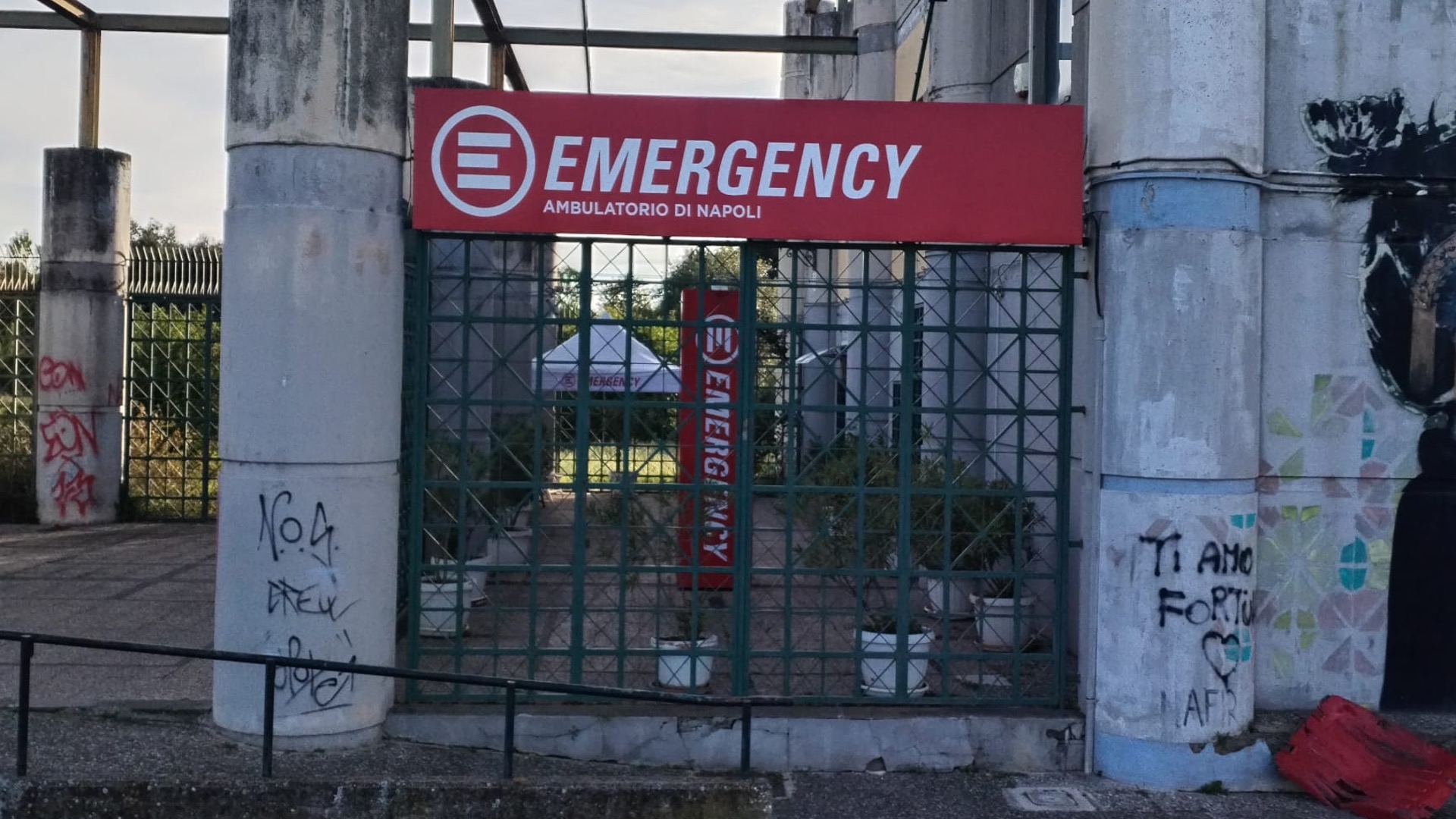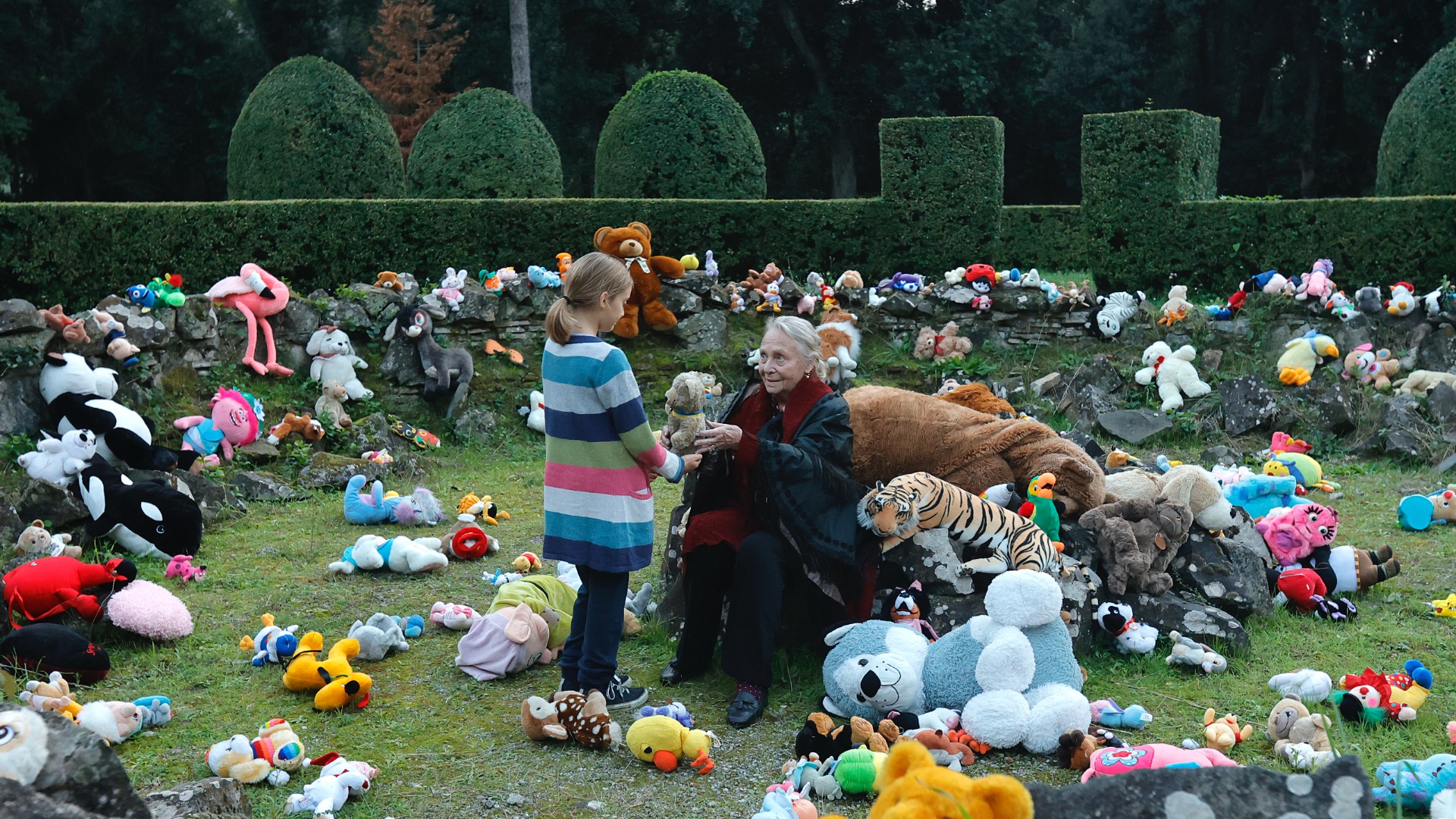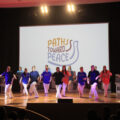
Workshop
EMERGENCY cares with the values of equality, neutrality, and excellence” – Interview with Michela Greco

Michela Greco is a film journalist who has long worked in communication for EMERGENCY. Over the years, she has managed to combine her experience and skills in the seventh art with her commitment to the large organization founded by Gino Strada in 1994. We met with her to talk about caring for the most vulnerable, human rights, a culture of peace, and a bit of cinema as well.
Michela, how has your professional journey developed?
In 2001, I began volunteering for EMERGENCY: I helped tell the story of what the organization was doing in public squares. I was involved in fundraising and organizing events. Meanwhile, I became a film journalist, and over time, I managed to bring the two activities closer together, thanks to the contacts I developed with some actors and filmmakers. Many of them showed great sensitivity towards the issues of EMERGENCY, and I was able to involve them in some events.
For how long have you been pursuing both paths?
I still do it today. Two and a half years ago, I became an employee of EMERGENCY after being a collaborator; while balancing my full-time commitment to the organization, I occasionally manage to carve out a bit of time to write about cinema. Today, I am part of the communication office of EMERGENCY, but even during my time as a collaborator, I was increasingly able to combine my work as a film journalist with projects for the organization.
Can you give some examples?
In 2018, we produced ten documentaries with EMERGENCY, focusing on as many projects of its “Programma Italia” (Program Italy) dedicated to the clinics present from North to South of the country, which guarantee the right to care for everyone. In participating in the production of those documentaries, I had the opportunity to interview our humanitarian workers and the beneficiaries of the projects, and in this way, I was able to deepen my understanding of these realities to tell their stories better.
Have other projects emerged from this one?
During that time, “A Story for EMERGENCY” was also born: a screenplay competition for short films reserved for young people. We are now in the fifth edition, dedicated to girls and boys aged between 18 to 30 years and focused on the theme of rejecting war.

Another intersection between cinema and EMERGENCY.
Even more so, if we want, because in each edition we have collaborated with the Rai Cinema and some of the most important national film production companies: in the first year, Wildside, then Groenlandia, Indigo Film, Fabula Pictures, and this year Giffoni Innovation Hub with Mosaicon. The response from the film industry has been tremendous: these entities wanted to work with us to stimulate the creation of stories by the younger generation on the themes most dear to EMERGENCY: the rejection of war, the promotion of a culture of peace, hospitality, migration, and solidarity. We are very satisfied with the short films, some of which, thanks to the agreement with Rai Cinema, are already available on Rai Play.
As “Ape Regina” by Nicola Sorcinelli, “Battima” by Federico Demmattè, and “Capitan Didier” by Margherita Ferri. How useful is cinema in supporting those in need and raising awareness about caring for the most vulnerable?
We strongly believe in these projects. “A Story for EMERGENCY” allows us to engage many young people with our most important themes and helps us understand their perspectives. We are interested in them speaking out to share what is happening. By informing themselves, investigating, and exploring, they can learn about realities they might not otherwise easily encounter.
Why do you pursue these initiatives in places where EMERGENCY is less expected?
When EMERGENCY is mentioned, Afghanistan or Sudan immediately come to mind: distant countries where we work, but less often do people think about the issues of access to care that exist right here in Italy, perhaps next door. We operate here too.

Also, through cinema, indeed…
It is a tool to delve deeper into issues: cinema allows you to empathize with stories more than a news report does.
Among the authors of the short films mentioned earlier is Margherita Ferri, who recently directed an important film on bullying: “The Boy in Pink Pants,” which we also reviewed on United World Project in a deeper exploration of the topic. What kind of relationship develops between you and these young authors?
We are happy with this project to also support emerging screenwriters and directors, giving them the opportunity to be appreciated by important production companies, and perhaps to emerge. Some have already done so. Besides Margherita Ferri and Nicola Sorcinelli, I think of screenwriter Alessandro Padovani, winner of the first edition (with “Ape Regina”) and the Solinas Prize.
Cinema supports EMERGENCY and EMERGENCY elevates cinema. Can we say that?
Let’s say that cinema is an important language for EMERGENCY, complementing the other forms of communication it uses, including new ones from the present. For several years, for example, we have been using virtual reality: with a 3D 360-degree headset, you can immerse yourself in our activities. You can “board” our search and rescue ship in the Mediterranean: the Life Support. It’s like being on board during the rescue of migrants.
The arts and cinema can be of great service…
I believe that this way, we can maximize the value of the specificity of cinematic language. In the short films, we explore our core themes through light, colors, music, and sound, with a type of storytelling that evokes rather than explains, creating atmospheres different from those that are typically more explicit in television or advertising.

How important is EMERGENCY‘s existence? What does this extraordinary organization, which has been around since 1994, teach us?
It’s enough to say that in these 31 years, it has treated 13 million people. EMERGENCY provides care with values of equality, neutrality, and excellence: everyone should have access to the best possible treatment. At the same time, EMERGENCY upholds the value of testimony: it tells what happens in certain places while striving to guarantee rights. Guaranteeing rights is the only possible antidote to war, which is never a solution because it erases all rights. EMERGENCY knows this well, as it has been treating the victims of war for 31 years.
How important is it to educate young people on the culture of peace?
It is fundamental. Always, and even more so in this dramatic moment. This is why EMERGENCY carries out many activities with schools. At the beginning of April, an event titled “I said R1PUD1A!” was organized, with 25,000 secondary school students and teachers connected from all over Italy with “Casa Emergency” in Milan. It aimed to explain what war means and what tools and ideas can be used to mobilize. Additionally, within EMERGENCY, there is Yep (Young Emergency People) dedicated to activation and in-depth paths for Generation Z.
What emotions does working towards building such noble values and for the good of the human community offer?
I am fortunate to work for something I truly believe in. To work concretely to change things, to guarantee rights.
What is the greatest lesson Gino Strada leaves us?
I have had the fortune and privilege of meeting him on many occasions. I shared part of my journey with the person capable of creating (not alone) EMERGENCY. Gino Strada was a visionary but at the same time a man of great practicality: he talked about things he knew deeply because he had hands-on experience. I think primarily of Afghanistan, one of the countries where EMERGENCY has been present the longest.






